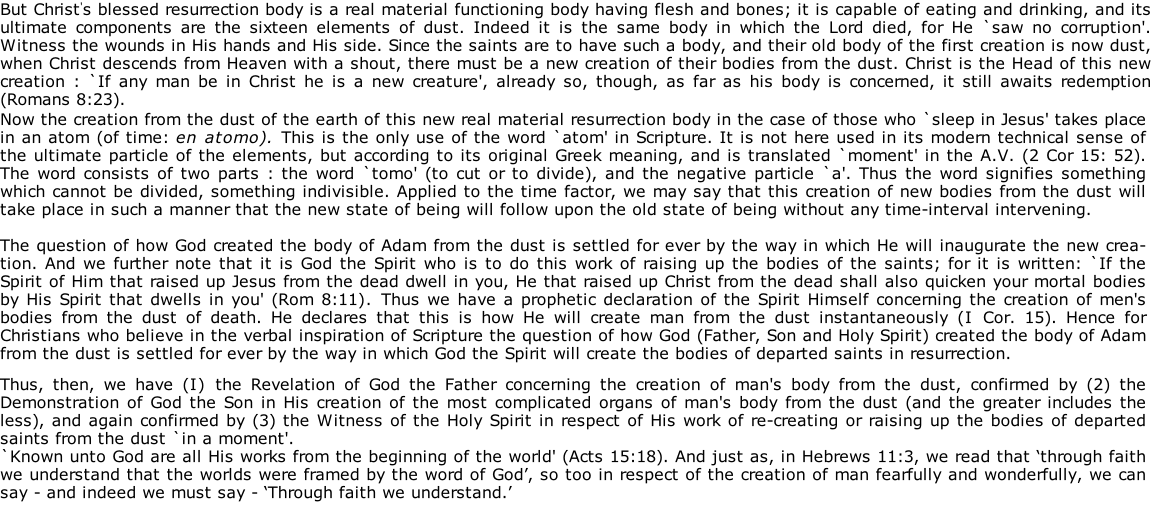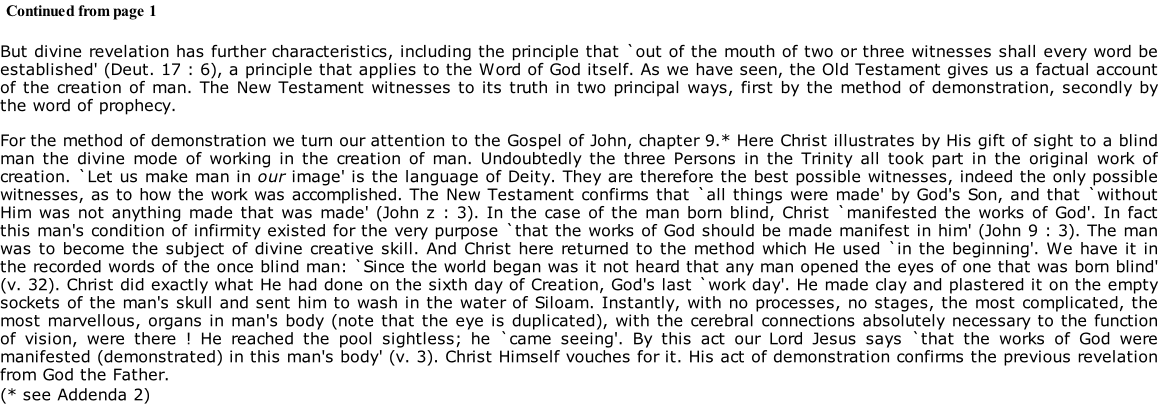
Welcome to my site for preachers



But divine revelation has further characteristics, including the principle that `out of the mouth of two or three witnesses shall every word be established' (Deut. 17 : 6), a principle that applies to the Word of God itself. As we have seen, the Old Testament gives us a factual account of the creation of man. The New Testament witnesses to its truth in two principal ways, first by the method of demonstration, secondly by the word of prophecy.
For the method of demonstration we turn our attention to the Gospel of John, chapter 9.* Here Christ illustrates by His gift of sight to a blind man the divine mode of working in the creation of man. Undoubtedly the three Persons in the Trinity all took part in the original work of creation. `Let us make man in our image' is the language of Deity. They are therefore the best possible witnesses, indeed the only possible witnesses, as to how the work was accomplished. The New Testament confirms that `all things were made' by God's Son, and that `without Him was not anything made that was made' (John z : 3). In the case of the man born blind, Christ `manifested the works of God'. In fact this man's condition of infirmity existed for the very purpose `that the works of God should be made manifest in him' (John 9 : 3). The man was to become the subject of divine creative skill. And Christ here returned to the method which He used `in the beginning'. We have it in the recorded words of the once blind man: `Since the world began was it not heard that any man opened the eyes of one that was born blind' (v. 32). Christ did exactly what He had done on the sixth day of Creation, God's last `work day'. He made clay and plastered it on the empty sockets of the man's skull and sent him to wash in the water of Siloam. Instantly, with no processes, no stages, the most complicated, the most marvellous, organs in man's body (note that the eye is duplicated), with the cerebral connections absolutely necessary to the function of vision, were there ! He reached the pool sightless; he `came seeing'. By this act our Lord Jesus says `that the works of God were manifested (demonstrated) in this man's body' (v. 3). Christ Himself vouches for it. His act of demonstration confirms the previous revelation from God the Father.
(* see Addenda 2)
But God is pleased to give us a second Witness. The Holy Spirit declares through Paul (1 Cor 15:51-

But God is pleased to give us a second Witness. The Holy Spirit declares through Paul (1 Cor 15:51-


| Powerpoint 2 |
| PowerPoint 3 |